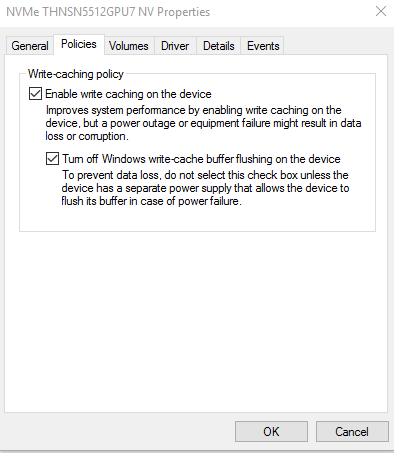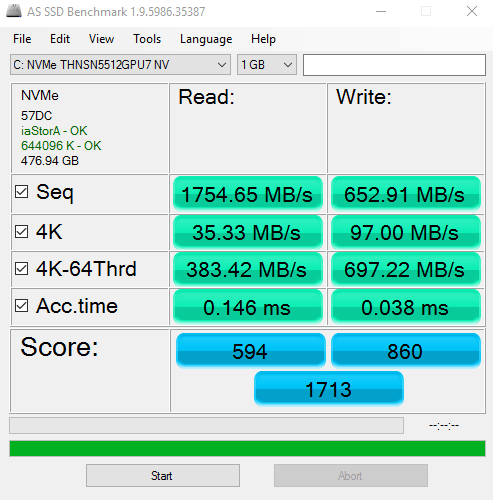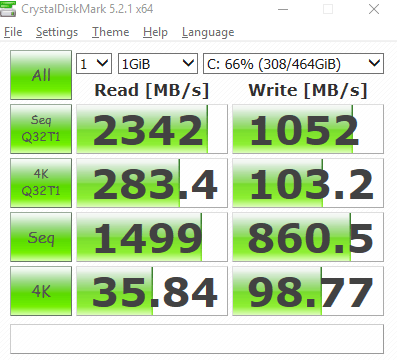4
0
When running a benchmark using the program AS SSD on an NVMe drive, When the second checkbox seen in the image below is unchecked, the drive gets terrible write performance in AS SSD (see first benchmark screenshot below), but not in CrystalDiskMark (see last screenshot); however, if I check that box, then AS SSD performs well. Does anyone know what's going on here? My concern is that according to that checkbox description, I should NOT have it checked since my drive doesn't have its own power supply, but AS SSD is so slow, I'm concerned other programs may be affected.
In case it's helpful, I learned about that checkbox in the first place from reading https://www.reddit.com/r/Dell/comments/628odr/toshiba_nvme_slow_write_speed_fix/, but this doesn't explain to me why CDM would still be fast. See also Slow SSD performance (Toshiba 1GB NVMe). I updated my Intel RST drivers and that didn't help.
I understand there could be a roundabout driver solution here, but I want to stay within warranty and try to find out what's going on so I can get Dell to support this and issue an official solution.




I don't trust the benchmark. Are you sure it understands NVMe? I'd just ignore the benchmark. – David Schwartz – 2017-06-03T03:01:35.407
1don't check that unless you really don't care to reformat the SSD daily (without recovering any data from it). See my answer. – LogicDaemon – 2017-06-03T09:56:49.710